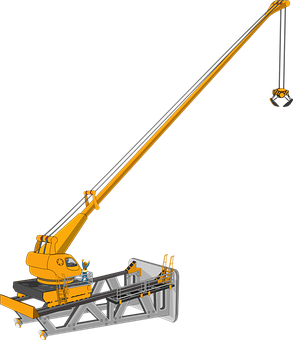It is a good idea to get adequate information on finding the right heavy equipment training school that covers crane operation. Also, find out what is covered in the crane operation training or apprenticeship program.
Ensure you review the certification and licensure requirements for the crane operators. You should note that crane operation training is provided through training or certification programs. That is an area of specialty that comes in the course format. Also, various licensing is available plus on-the-job training and apprenticeships.
Finding Right Crane School
There are hundreds of technical and community schools that provide heavy equipment training programs. Most of the programs include crane operation. Also, apprenticeship programs are available to you. It is easy to find a list of reputable organizations and firms that provide these training programs.
How is Training Administered?
 Usually, training is geared towards preparing students for crane certification. However, there are notable differences in the procedures. The apprenticeship programs do take place at the local job sites for the practical aspects of the training while the classroom instruction is carried at the association office or local union. Also, the apprenticeship programs last about four years, during which you are already on the job.
Usually, training is geared towards preparing students for crane certification. However, there are notable differences in the procedures. The apprenticeship programs do take place at the local job sites for the practical aspects of the training while the classroom instruction is carried at the association office or local union. Also, the apprenticeship programs last about four years, during which you are already on the job.
The training programs can take place at the training school’s physical area or in cooperation with reputable local companies. The time it takes to complete your training is dependent on the actual training you pursue and school. In most cases, the coursework covers operation, maintenance, and safety inspections of different types of equipment that include mobile, articulating, and overhead cranes. The training programs for these types of equipment can last each up to 4 weeks.
Types of Crane Operator Training Programs
Most schools that provide crane operator training programs are meant to help students earn crane operator certification and acquire skills on the job. Nowadays, you can enroll in a training program for one or more types of used cranes that include lattice boom cranes, swing cab, and fixed cab.
 If your aim is to work around power lines with heavy equipment or cranes, signal person and rigging training are needed. Other than the training programs, most vocational schools and community colleges provide individual courses on crane safety and operation. The training meets the regulatory and safety requirements set by OSHA. Some of the available programs include stand-alone courses, certification programs, and certification prep. Common skills you will learn include: crane inspection, rigging strategies, maintenance, lifting safety, and signals.
If your aim is to work around power lines with heavy equipment or cranes, signal person and rigging training are needed. Other than the training programs, most vocational schools and community colleges provide individual courses on crane safety and operation. The training meets the regulatory and safety requirements set by OSHA. Some of the available programs include stand-alone courses, certification programs, and certification prep. Common skills you will learn include: crane inspection, rigging strategies, maintenance, lifting safety, and signals.


